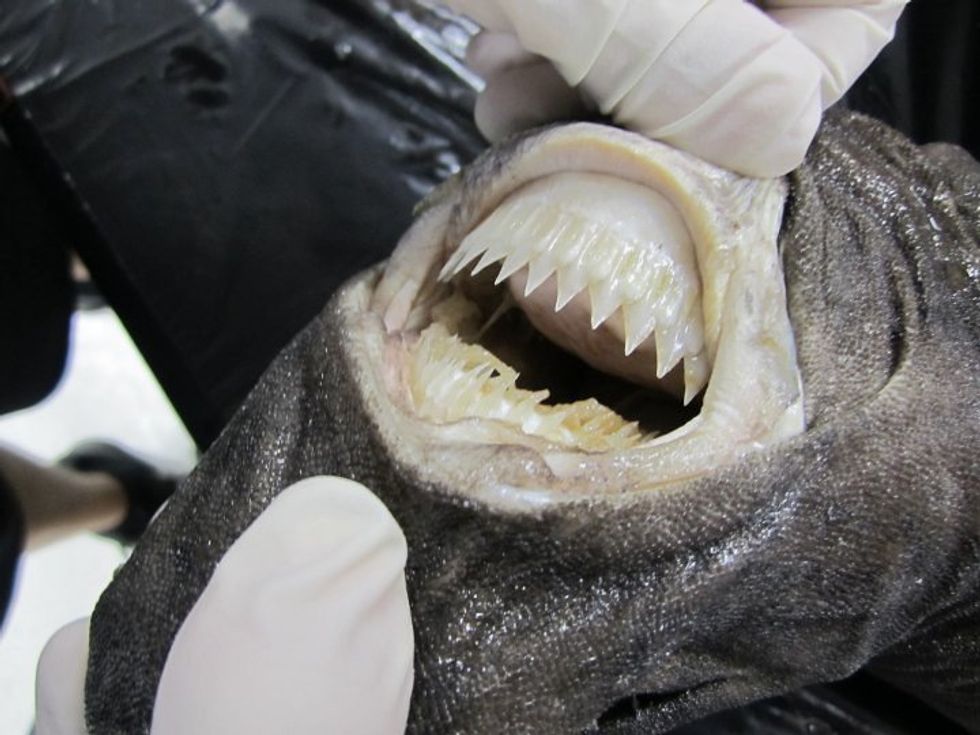Science & Tech
Kate Plummer
Sep 07, 2023
Three rescued after catamaran attacked by sharks in the Coral Sea
AMSA
Small sharks called cookiecutters have just caused chaos in the Coral Sea.
Three people had to be rescued off the coast of Cairns this week, after their catamaran was damaged by several of the sharks, leaving the rear left cylinder of their nine-metre inflatable catamaran damaged and starting to sink.
The three people – two Russian and one French citizen – were successfully rescued. The vessel, bound for Shanghai, arrived 45 minutes after the distress call was sent, the crew said on social media.
But what are the sharks responsible for the incident?
Daryl McPhee, an associate professor of environmental science at Bond University, told the Guardian cookiecutters are usually about 15-20cm long but can reach 50cm. He said they “really just look like a pencil with teeth”.
“They’ll find a large animal like a whale or a dolphin, living or dead, and attach themselves to it. They’ll twist and literally pull out a biscuit-sized chunks of flesh. They can do that repeatedly,” McPhee said.

Prof Jodie Rummer, a marine biologist at James Cook University, said the cookiecutter was technically a parasite and behaved very differently to other sharks.
“They’re called the cookiecutter shark because they don’t actually swallow their prey,” Rummer said. “They just take little bite-size morsels out of the side of them.
“They’re bioluminescent too, they glow. They’re a really cool species of shark. This unfortunate incident has given us an opportunity to learn about them.”
There’s no record of cookiecutters killing people, but in 2017, one swam through a swimming enclosure on Magnetic Island and bit a seven-year-old on the leg.
Rummer said cookiecutters were opportunistic feeders with limited vision that will have a go at anything they comes across. They can cause larger animals problems by leaving them with open wounds.
McPhee said cookiecutters are known to bite inanimate objects and have attempted to eat submarines and undersea cables.
They sound pretty creepy.
Sign up to our free Indy100 weekly newsletter
Have your say in our news democracy. Click the upvote icon at the top of the page to help raise this article through the indy100 rankings.
Top 100
The Conversation (0)














